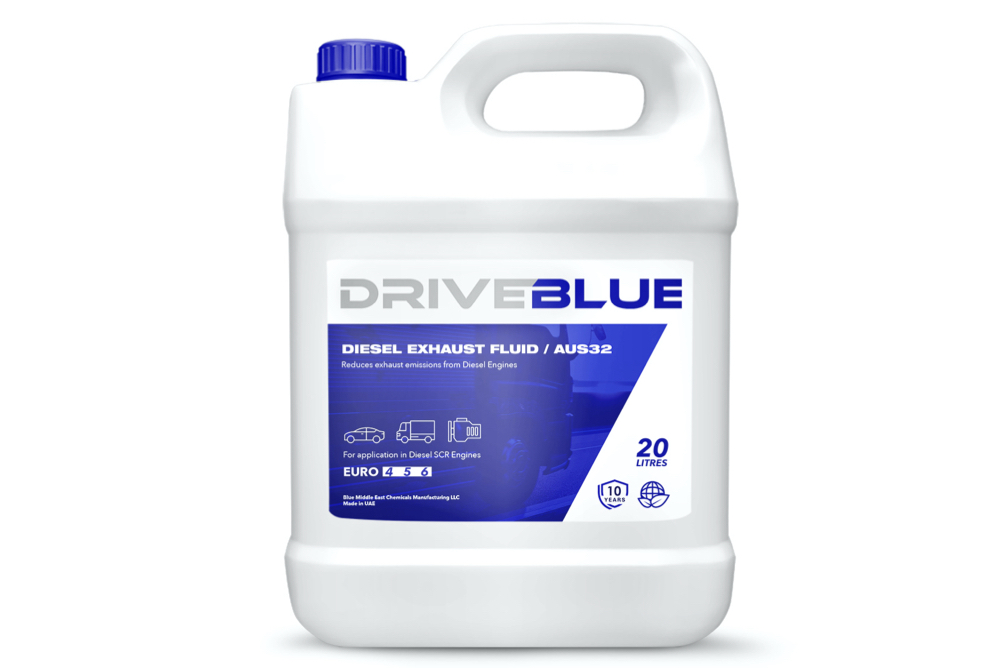Modern diesel vehicles are increasingly equipped with advanced technologies to reduce emissions and comply with stringent environmental regulations. One of the critical components in these systems is Diesel Exhaust Fluid (DEF), also known as AdBlue in Europe. This fluid plays a pivotal role in reducing harmful emissions and ensuring that diesel engines run efficiently and cleanly. In this blog, we’ll explore what Diesel Exhaust Fluid is, how it works, and why it is essential for modern diesel vehicles.
Having Knowledge about Diesel Exhaust Fluid (DEF)
What is Diesel Exhaust Fluid?
Diesel Exhaust Fluid is a non-toxic, colorless, and odorless liquid composed of 32.5% urea and 67.5% deionized water. It is specifically designed for use in Selective Catalytic Reduction (SCR) systems, which are fitted in many modern diesel engines to reduce emissions of nitrogen oxides (NOx), a major pollutant produced during diesel combustion.
How Does DEF Work?
When injected into the exhaust stream of a diesel engine, DEF breaks down into ammonia and carbon dioxide. The ammonia then reacts with the NOx gases in the presence of a catalyst, converting these harmful pollutants into harmless nitrogen and water vapor. This process significantly reduces the amount of NOx emitted from the vehicle’s exhaust, helping to meet environmental standards and improve air quality.
The Importance of DEF in Modern Diesel Vehicles
Environmental Benefits
Reduction in NOx Emissions
NOx emissions contribute to air pollution, smog, and respiratory problems. By using DEF, modern diesel vehicles can reduce NOx emissions by up to 90%, making a significant positive impact on air quality and public health.
Compliance with Emission Standards
Governments worldwide have implemented strict emission regulations to combat air pollution. Using DEF in diesel vehicles helps manufacturers and operators comply with these regulations, avoiding fines and penalties while contributing to environmental conservation efforts.
Performance and Efficiency
Enhanced Engine Performance
The use of DEF allows diesel engines to operate more efficiently. By reducing NOx emissions externally, the engine can be tuned for better performance and fuel efficiency without compromising on emissions.
Improved Fuel Economy
SCR systems with DEF can improve fuel economy by optimizing combustion efficiency. This means that vehicles can travel further on the same amount of fuel, reducing operational costs for drivers and fleet operators.
Economic Benefits
Lower Maintenance Costs
DEF helps in maintaining cleaner engine components by reducing soot and other harmful deposits. This leads to lower maintenance costs and fewer breakdowns, as the engine and exhaust systems remain cleaner and more efficient.
Increased Vehicle Lifespan
By keeping the engine and exhaust system cleaner and reducing the wear and tear on critical components, DEF can contribute to a longer vehicle lifespan. This means better return on investment for vehicle owners and fleet operators.
Practical Considerations for Using DEF
Storage and Handling
Proper Storage
DEF should be stored in a cool, dry place, away from direct sunlight and extreme temperatures. Exposure to high temperatures can cause the urea in DEF to break down, reducing its effectiveness.
Handling Precautions
While DEF is non-toxic, it is essential to handle it with care to avoid contamination. Always use clean equipment when refilling the DEF tank and avoid mixing it with any other substances.
Refilling and Maintenance
Monitoring DEF Levels
Most modern diesel vehicles are equipped with sensors and indicators that alert drivers when DEF levels are low. It is crucial to monitor these levels regularly and refill as needed to ensure the SCR system operates effectively.
Regular Maintenance Checks
Regular maintenance checks of the SCR system and DEF tank are essential to ensure they are functioning correctly. Any leaks, blockages, or issues should be addressed promptly to avoid potential damage or reduced performance.
Common Questions About DEF

Can DEF Freeze?
Yes, DEF can freeze at temperatures below 12°F (-11°C). However, most vehicles equipped with SCR systems have built-in heaters to thaw the DEF and ensure it flows correctly when the engine starts.
What Happens if the DEF Tank Runs Dry?
If the DEF tank runs dry, the vehicle’s performance may be limited, and the engine’s power may be reduced to comply with emission standards. Most vehicles will provide ample warning before this happens, so it is essential to refill the DEF tank as soon as possible when alerted.
Is DEF Harmful to the Environment?
DEF is not harmful to the environment when handled and used correctly. It is designed to break down into natural components (nitrogen and water vapor) during the SCR process. However, it should be disposed of properly, and spills should be cleaned up to prevent contamination.
Conclusion
Diesel Exhaust Fluid is a vital component in modern diesel vehicles, playing a crucial role in reducing harmful emissions and improving engine performance. By understanding the importance of DEF and how to use it correctly, drivers and fleet operators can ensure their vehicles meet stringent emission standards, operate efficiently, and contribute to a cleaner environment. As regulations continue to evolve and the focus on sustainability grows, the role of DEF in the automotive industry will only become more significant. Embracing this technology not only helps in regulatory compliance but also supports broader efforts to reduce the environmental impact of transportation.
Note:- For more articles visit on dutable.


